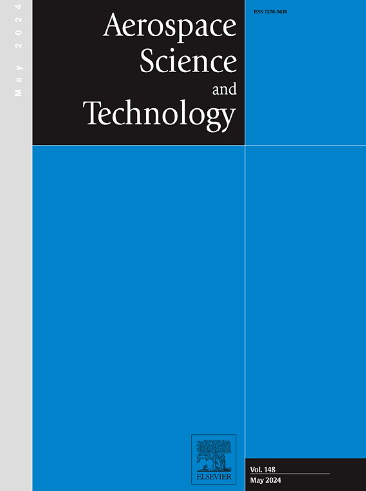Fault-tolerant control of nonlinear cluster system for fixed-wing UAV piston engine faults based on hierarchical architecture
IF 5
1区 工程技术
Q1 ENGINEERING, AEROSPACE
引用次数: 0
Abstract
Due to the information exchange between fixed-wing UAV clusters, the fault and disturbance information generated when the actuator, including the engine, is transmitted from the faulty UAVs to the healthy UAVs. Given this situation, this paper proposes a cluster fault-tolerant control strategy based on hierarchical architecture. Firstly, this paper analyzes the influence of vibration caused by engine failure on fixed-wing UAVs and illustrates the necessity of considering this factor with simulation experiments. Secondly, this paper designs a hierarchical architecture, which divides the distributed control of the fixed-wing cluster system into consistency control of the upper layer and fault-tolerant tracking control of the lower layer, so that the fault information will only exist in the faulty UAVs, ensuring that the healthy UAVs will not be affected, thus avoiding the occurrence of fault propagation and improving the overall fault tolerance of the cluster. Finally, by analyzing the stability of the Lyapunov function, it is shown that this method can still follow the leader in systems with the followers' failures, and the effectiveness of this method is verified by comparing simulation results.
求助全文
约1分钟内获得全文
求助全文
来源期刊

Aerospace Science and Technology
工程技术-工程:宇航
CiteScore
10.30
自引率
28.60%
发文量
654
审稿时长
54 days
期刊介绍:
Aerospace Science and Technology publishes articles of outstanding scientific quality. Each article is reviewed by two referees. The journal welcomes papers from a wide range of countries. This journal publishes original papers, review articles and short communications related to all fields of aerospace research, fundamental and applied, potential applications of which are clearly related to:
• The design and the manufacture of aircraft, helicopters, missiles, launchers and satellites
• The control of their environment
• The study of various systems they are involved in, as supports or as targets.
Authors are invited to submit papers on new advances in the following topics to aerospace applications:
• Fluid dynamics
• Energetics and propulsion
• Materials and structures
• Flight mechanics
• Navigation, guidance and control
• Acoustics
• Optics
• Electromagnetism and radar
• Signal and image processing
• Information processing
• Data fusion
• Decision aid
• Human behaviour
• Robotics and intelligent systems
• Complex system engineering.
Etc.
 求助内容:
求助内容: 应助结果提醒方式:
应助结果提醒方式:


